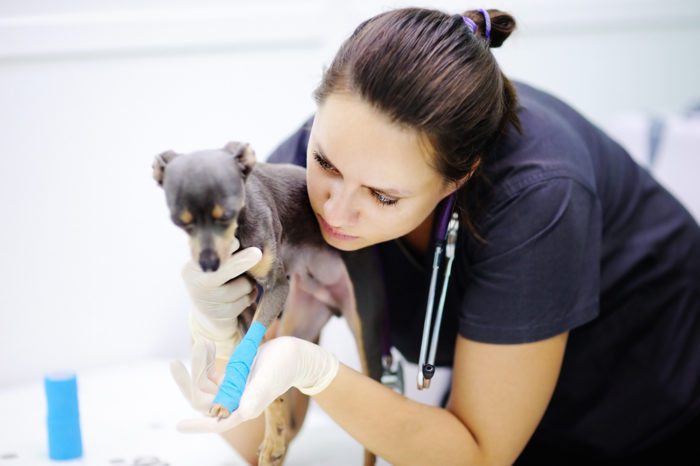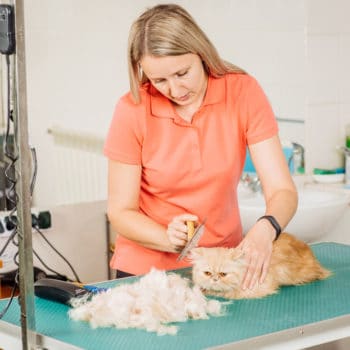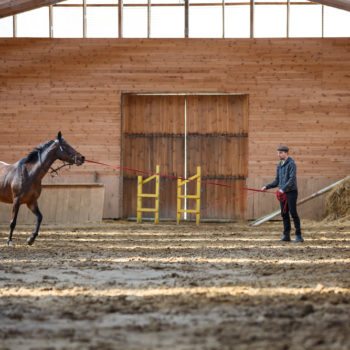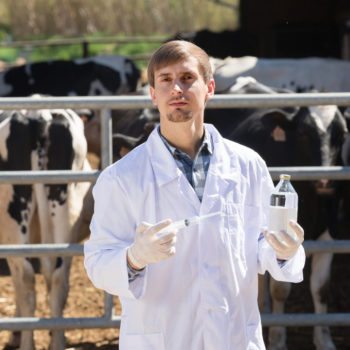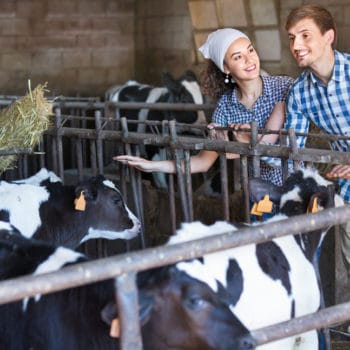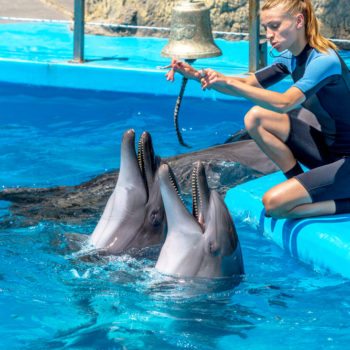Why We Love It
-
$35,330Potential Avg. Salary
-
6%Job Growth Rate
-
Growing DemandJob Outlook
-
High Job SatisfactionCareer Attribute
Animal cruelty investigators conduct investigations of the living conditions of pets and animals when possible abuse or neglect has been reported. Reports of abuse or neglect may come from a variety of sources: from veterinarians, from animal control departments, from neighbors, or other observers.
Recommended Schools
What is an Animal Cruelty Investigator?
The following job responsibilities are common for individuals in animal cruelty investigator roles:
- Investigate reports of suspected animal abuse or neglect
- Inspect animals and living conditions for signs of abuse or neglect
- Interview individuals who care for animals
- Compile thorough documentation of findings, collect witness statements, and photograph injuries or living arrangements
- Arrest perpetrators of animal cruelty and/or confiscate abused animals
A Day in the Life
Animal cruelty investigators conduct investigations when animal abuse or neglect is suspected. Suspicions of animal abuse or neglect may come from a variety of sources: a veterinarian or other animal care provider may report concerns, a representative from an animal control agency may report suspicions after being called about a loose or dangerous pet, or family members, neighbors, or random observers may call police departments to report witnessing animal abuse or neglect.
When suspicions are reported, animal control investigators visit the location where the abuse or neglect was observed. Animal control investigators conduct investigations of minor incidents of improper pet care, moderate situations where pets are being abused by owners, or severe situations for things like suspected dog fighting rings. If the animal cruelty investigator works for law enforcement, he/she may actually be able to make arrests related to animal abuse or confiscate abused or neglected animals.
The animal cruelty investigator is responsible for compiling detailed documentation of the evidence gathered during investigations. He/she collects statements from witnesses, interviews the individuals responsible for caring for the animal, examines animals for signs of abuse, examines the animals living conditions for signs of neglect, and takes photographs of injuries and/or improper living conditions. This documentation is used when a judge reviews the case to determine if an animal should be permanently removed from its home, or to assign judgments in cases of severe and/or deliberate animal cruelty.
Typical Work Schedule
Most animal cruelty investigators work full-time hours, but their working schedules may be irregular. While they may work normal business hours to compile documentation, they may also be required to work evenings, weekends, and holidays to investigate emergency reports of animal cruelty.
Typical Employers
Animal cruelty investigators may work for a number of agencies responsible for criminal justice or focused on animal rights. They may be employed by law enforcement agencies and serve in roles similar to police officers. They may work for non-profit agencies like humane societies, animal shelters, or organization like PETA. They may also work for animal control services, employed by federal, state, or local governments.
Recommended Schools
How To Become an Animal Cruelty Investigator
Some animal cruelty investigators are able to work their way into the role with only a high school diploma. To succeed in the field without a postsecondary certificate or degree, you usually have to start in entry-level positions in animal welfare organizations. For example, you may volunteer to work with animals at shelters or take a position answering phones for an animal control agency. With time and experience working with animals professionally, you may be able to move into animal cruelty investigator roles.
Conversely, some animal cruelty investigators skip the entry-level experience and volunteering requirements by pursuing postsecondary education related to the field. In some states, animal cruelty investigators must hold the same credentials as law enforcement officers. If this is the case in your state, you’ll need to enter and complete police academy training. However, many states will not accept police academy candidates until they’re 21 years-old, so aspiring animal cruelty investigators can use the time between graduating high school and entering the academy to learn more about animal care.
Some choose to pursue associate’s or bachelor’s degree in animal science, zoology, or veterinary sciences. These degrees provide students with a basis for understanding animals, what animals need, and how to care for them. This education is useful in your future career because you will have a background both in animal care and law enforcement. Others may choose to study criminal justice or law in order to better formulate cases against suspected animal abusers after graduation.
Animal Cruelty Investigator Salary Data
We’ve provided you the following to learn more about this career. The salary and growth data on this page comes from recently published Bureau of Labor Statistics data while the recommendations and editorial content are based on our research.
National Anual Salary
Low Range
$26,350Average
$35,330High Range
$53,190National Hourly Wage
Low Range
$13/hrAverage
$17/hrHigh Range
$26/hrHow do Animal Cruelty Investigator salaries stack up to other jobs across the country? Based on the latest jobs data nationwide, Animal Cruelty Investigator's can make an average annual salary of $35,330, or $17 per hour. This makes it an Above Average Salary. On the lower end, they can make $26,350 or $13 per hour, perhaps when just starting out or based on the state you live in.
Salary Rankings And Facts
#613 Nationally for All Careers
Programs and Degrees
Here are the most common degrees for becoming an Animal Cruelty Investigator. a is usually recommended and specifically a degree or coursework that prepares you for the particular field, see below.
Highest Education Among Animal Cruelty Investigators
- 0% Doctorate
- 1.8% Masters
- 14.2% Bachelors
- 13% Associates
- 27.5% College
- 37.7% High School
- 5.7% Less than High School
Job Growth Projections and Forecast
2014 Total Jobs
15,0002024 Est. Jobs
15,900Job Growth Rate
6%Est. New Jobs
900How does Animal Cruelty Investigator job growth stack up to other jobs across the country? By 2024, there will be a change of 900 jobs for a total of 15,900 people employed in the career nationwide. This is a 6% change in growth over the next ten years, giving the career a growth rate nationwide of Below Average.
Growth Rankings And Facts
#374 Nationally for All Careers
What Companies Employ The Most Animal Cruelty Investigators
| Industry | Current Jobs | New Jobs Needed | % Increase |
|---|---|---|---|
| Local government, excluding education and hospitals | 12,800 | 700 | 1% |
| Social advocacy organizations | 1,100 | 100 | 0% |
| Self-employed workers | 700 | 100 | --- |
